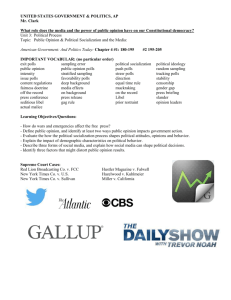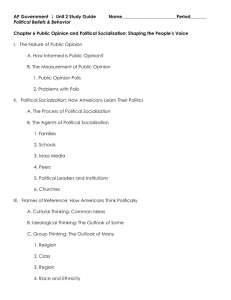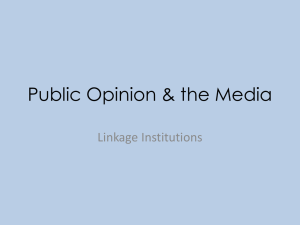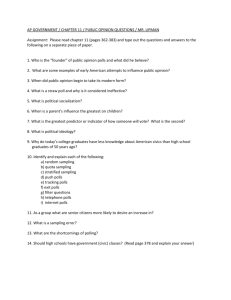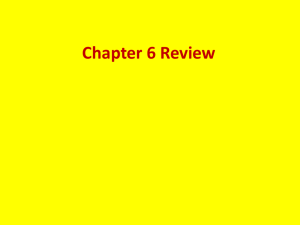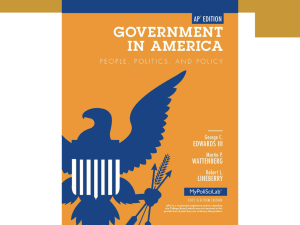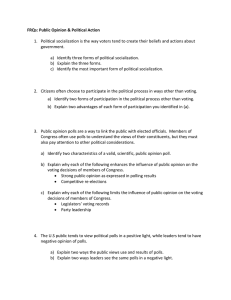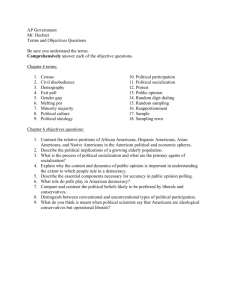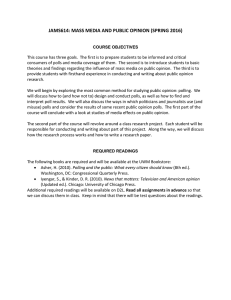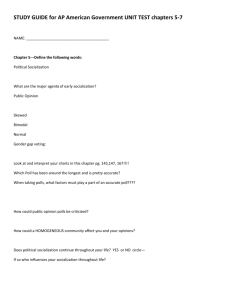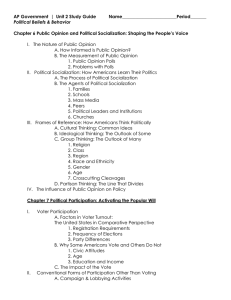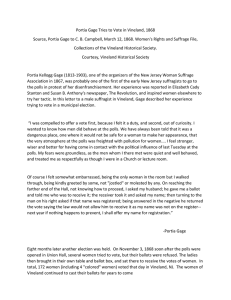Government in America, Chapter 6
advertisement
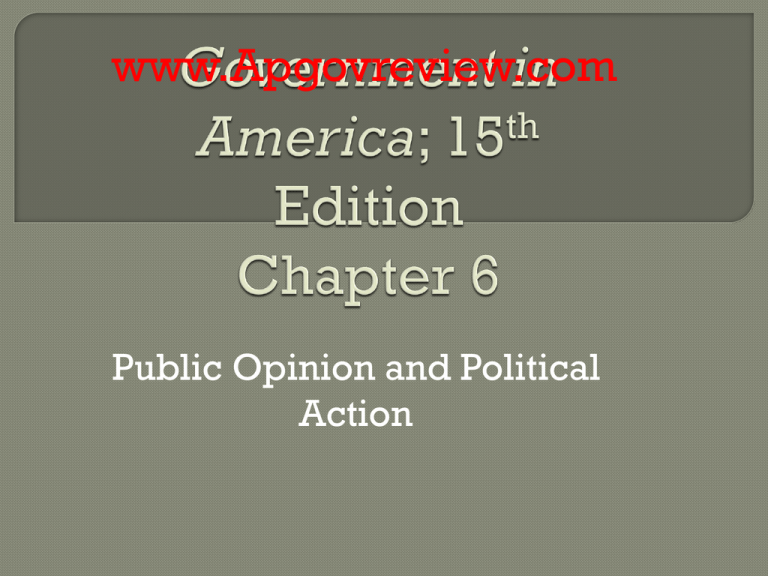
www.Apgovreview.com Public Opinion and Political Action Census – required by law to be taken every ten years • Helps determine how much $ each state gets – and representatives The Immigrant Society: • 1,000,000 immigrants can come to the US by law California has the highest percentage of immigrants • Immigration throughout US History: 1. “Old Immigration” Northern and Western Europe (Irish, Germans, British) 2. “New Immigration” Southern and Eastern Europe (Italians, Russians, Jews) 3. 1960s – present day: Hispanics and Asians The American Melting Pot: • Melting pot – many different cultures blend into one • Minority majority – America will no longer have a white majority • African Americans are no longer the largest minority – Hispanics • Illegal Immigration – 10.8 million in 2009 • Simpson-Mazzoli Act – requires employers to keep track of the citizenship of employees The American Melting Pot (Continued): • Asian Immigrants tend to be highly skilled • Native Americans – 4.5 million Americans Face obstacles – health, education, financial The Regional Shift: • Reapportionment – changing the number of members in the House based on the census • Since WWII, the South and West saw in increase in population (Sun Belt) The Graying of America: • Baby Boomers – those born between 1945 – 1964 (fastest growing group) • Social Security is the 2nd most costly public policy • Senior Citizens vote more than any other group Political Socialization: • How a person learns or decides their political beliefs The Process of Political Socialization: • The Family: (seen on m.c. portion of released exams) Very influential, young individuals tend to vote how their parents vote • The Mass Media: Very influential, not just news stations • School: Education plays a large role in socialization – Jefferson wanted an educated electorate The more educated an individual, the more likely they are to vote in elections Political Learning over a Lifetime • As individuals age, they tend to become more involved in politics How Polls Are Conducted • Gallup Polls – take a sample of the population • Random Sampling – everyone has the possibility of being part of the sample • Sampling Error – typically 2-3% • Polls must keep with changing times (cell phones v. home phones) The Role of Polls in American Democracy: • Do politicians follow polls too much? • Polls may create a bandwagon effect • Exit Poll – heavily criticized, those on the West Coast still need to vote • Wording of polls can influence answers What Polls Reveal About Americans’ Political Information: • Who lives at 1600 Pennsylvania Avenue? Who lives in a pineapple under the sea? The Decline of Trust in Government: • Since the 1960s, public trust in government has declined Gulf of Tonkin, Watergate, Iran Hostage Crisis, etc. • Many Americans believe that government solutions to problems are wasteful Political Ideology: • Liberals – favor larger central government, conservatives – favor smaller central government Who are the Liberals and Conservatives? • More often than not, Americans choose conservatives • African Americans tend to be more liberal, as do women • Gender Gap – women are more likely to support Democrats • The importance of religion in a person’s life influences their views What religion they are is less important, rather how religious they are The more religious, the more conservative (typically) Do People Think in Ideological Terms? Political Participation: • More than just voting – protest, writing government officials, etc. Conventional Participation: • Voting, door to door campaigning • Unconventional – protesting, civil disobedience • Majority of Americans vote (only form of participation that a majority participate in) Protest as Participation: • Unconventional, seeks to change policy • Civil disobedience – Henry David Thoreau, Gandhi, MLK Jr. Class, Inequality, and Participation: • The higher the economic status, the more likely one is to participate in politics • Blacks are more likely to vote than whites • The higher the voter turnout for a group, the more politicians pay attention Public Attitudes Toward the Scope of Government: “In this present crisis, government is not the • Barry Goldwater in 1964 solution to our • 1980 – 50% of Americans felt the government was too problems; government powerful is the problem.” • Many people today feel it is too big, yet want more spending on certain programs • Reagan’s inaugural address Melting Pot Immigration throughout History Political Socialization – families Polls and Sampling Errors Liberals vs. Conservatives Religion and Politics Conventional vs. Unconventional Participation Subscribe to my channel Help spread the word Questions? Comments? • Leave in comments
